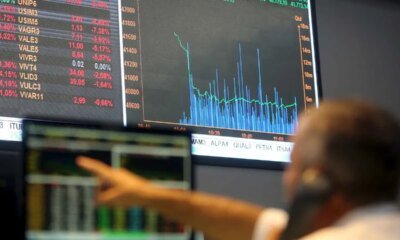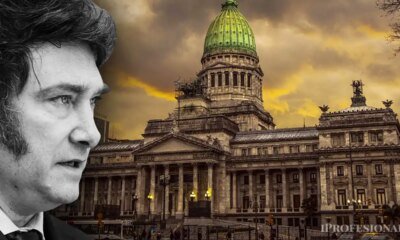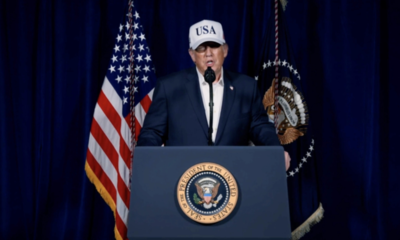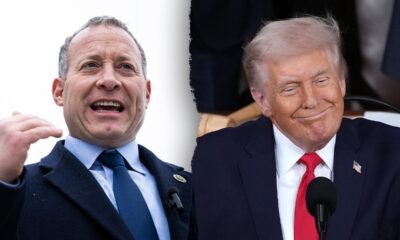INTERNACIONAL
Remembering Rep. Charlie Rangel — and a voicemail I’ll never forget
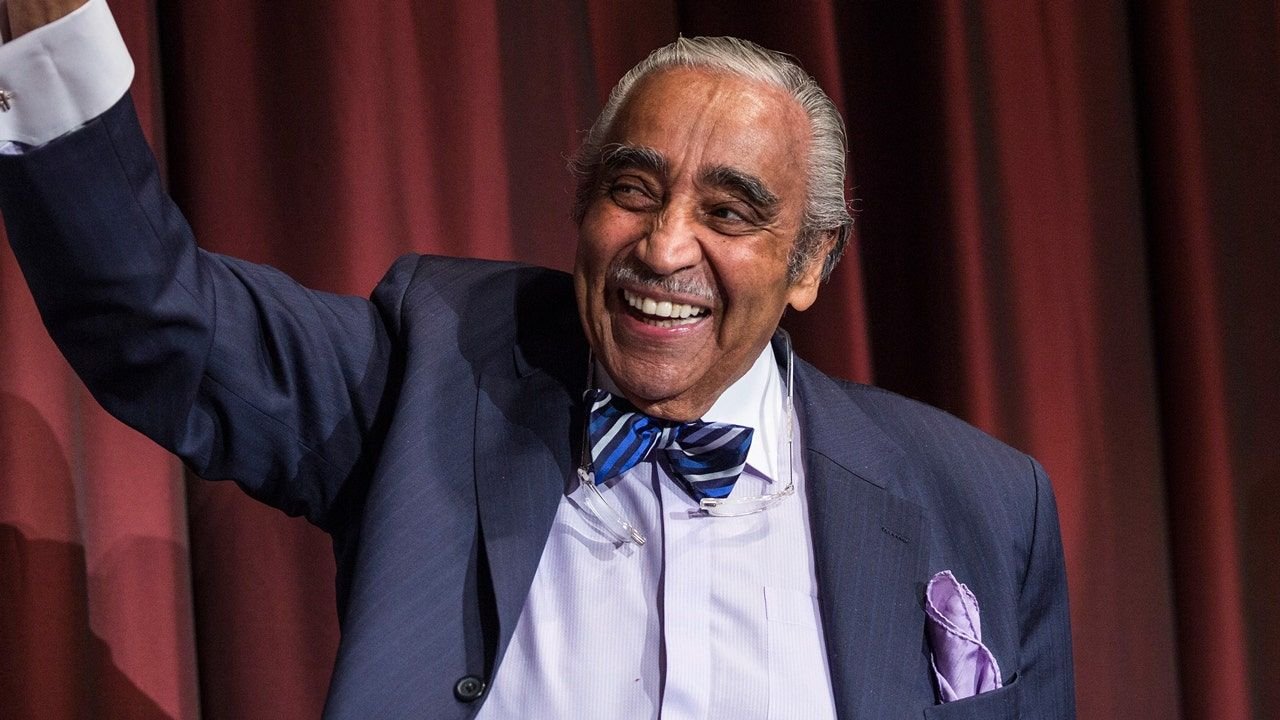
I didn’t recognize the «917» New York number that called me.
But there was no question about who phoned after they left a message.
The caller on the voicemail was utterly unmistakable.
They didn’t say their name.
They didn’t have to.
«Chad, you’re the only one who missed me,» croaked the voice.
FORMER NY DEMOCRATIC REP CHARLIE RANGEL DEAD AT 94
It carried the sleekness of a stone crusher working over basalt in a West Virginia quarry.
The voicemail was from the late Rep. Charlie Rangel, D-N.Y. And he was essentially calling to assure me that he wasn’t dead.
After all, I was apparently the only member of the congressional press corps who noticed that the New York Democrat hadn’t voted nor been anywhere near the U.S. Capitol in several weeks.
There was no article in Roll Call. Nothing in Politico. No statement from his office.
Rangel just wasn’t around.
Former Rep. Charlie Rangel, D-N.Y. — a man whose tenure on Capitol Hill I have many fond memories of — died Monday. He was 94. (Andrew Burton/Getty Images)
So I called and wound up speaking to his communications director Hannah Kim and chief of staff George Henry.
I inquired if Rangel was all right. They assured me he was. But they didn’t quite give me the full story. That was for Rangel to do.
And then Rangel himself called — from his sickbed — so I could hear his signature jackhammer-chopping-through-the-asphalt-of-Manhattan voice to prove to this reporter he was still among the living.
«I wanted you to hear it from me,» said Rangel.
EX-REP. CHARLIE RANGEL, 94, QUESTIONS WHETHER BIDEN BELONGS IN NURSING HOME, NOT WHITE HOUSE
It was 2012. Rangel was out because of a back injury and a viral infection, which made it difficult for him to stand for long periods of time. From 2008 through late 2010, I dogged Rangel through the halls of Congress on a daily basis as the veteran congressman grappled with an ethics scandal. The ethics case culminated in the House censuring Rangel, permanently smudging his record as a war hero, a founding member of the Congressional Black Caucus and chairman of the Ways and Means Committee.
First elected to the House in 1970, Rangel’s star had dimmed after the ethics scandal. But in 2012, any information about an elderly, legendary congressman like Rangel was newsworthy. So, as a reporter on the Capitol Hill beat, I appreciated the phone call as he described the excruciating pain that beset him.
It’s possible the Ethics Committee investigation and censure by the House were more agonizing for Rangel than the back problem. Rangel was so confident that he didn’t violate House rules that he referred himself to the Ethics Committee.
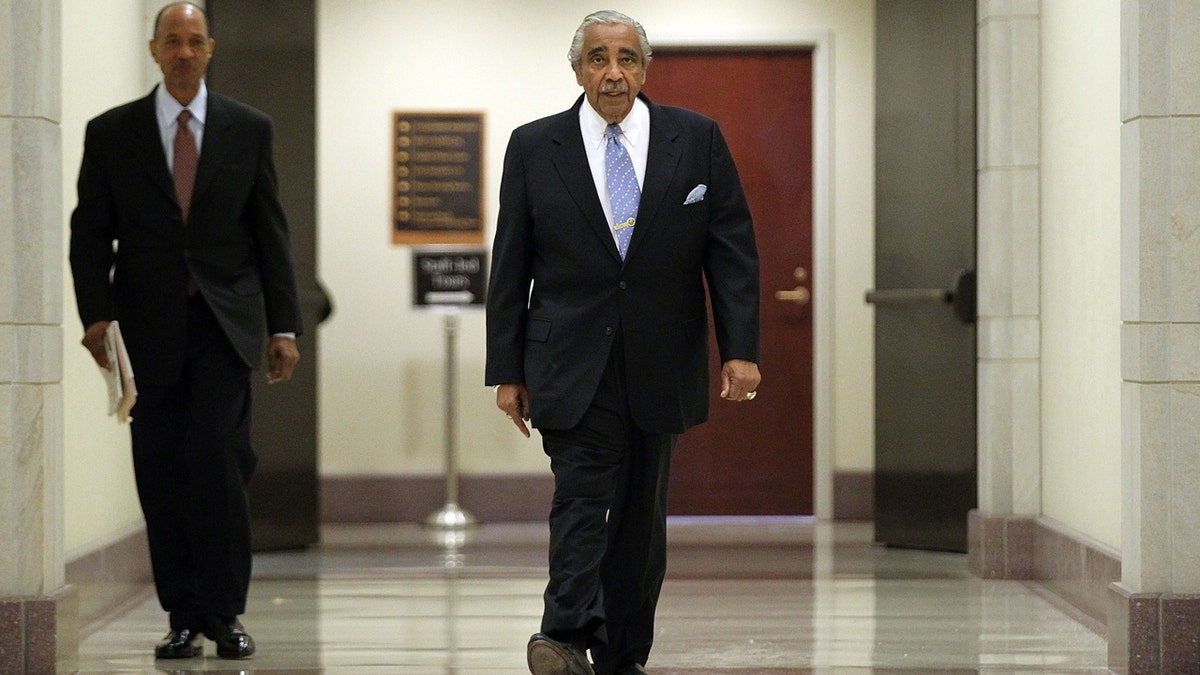
Rangel’s woes with the Ethics Committee might as well have been more painful for him than his back problems. (Alex Wong/Getty Images)
Rangel started to feel the ethics heat in 2008. He used his position as chairman of the Ways and Means Committee to solicit funds for a school in his name at City College of New York. He failed to report hundreds of thousands of dollars in taxes or rental income on a villa he owned in the Dominican Republic.
A rent-controlled apartment in Harlem doubled as a campaign office. He improperly parked his broken-down, 1972 silver Mercedes-Benz in the garage of the Rayburn House Office Building. The House prohibits lawmakers from using the garage for storage. The Benz lacked plates, wasn’t registered and apparently hadn’t been driven in about four years. A Falls Church, Virginia, towing company lugged the car out of the garage on Sept. 19, 2008.
Video of the tow-truck hauling away the Mercedes-Benz from Rayburn would have made a juicy story the next morning on TV. But Rangel caught a break.
Sort of.
VIRGINIA DEMOCRATIC REP GERRY CONNOLLY DEAD AT 75
Then-House Speaker Nancy Pelosi, D-Calif., summoned then-Treasury Secretary Hank Paulson to Capitol Hill that night. The U.S. economy teetered on the verge of an epic financial collapse. By nightfall, it was clear just how bad the nation’s economy was. Everyone temporarily forgot about Rangel. In fact, the inoperable Benz may have been in better shape than some American car companies at that moment.
But the House Ethics Committee was investigating Rangel. An inquiry started in 2009 and culminated in his censure on the House floor in 2010. The House voted 333-79 to discipline Rangel. A somber Rangel presented himself in the well of the House chamber, hands folded in front of him as though he were about to receive Communion. Pelosi doled out her admonition from the dais and lightly rapped the gavel.
«He violated the public trust,» said then-Ethics Committee Chairwoman Zoe Lofgren, D-Calif.
It was the first censure of a House member in 27 years.
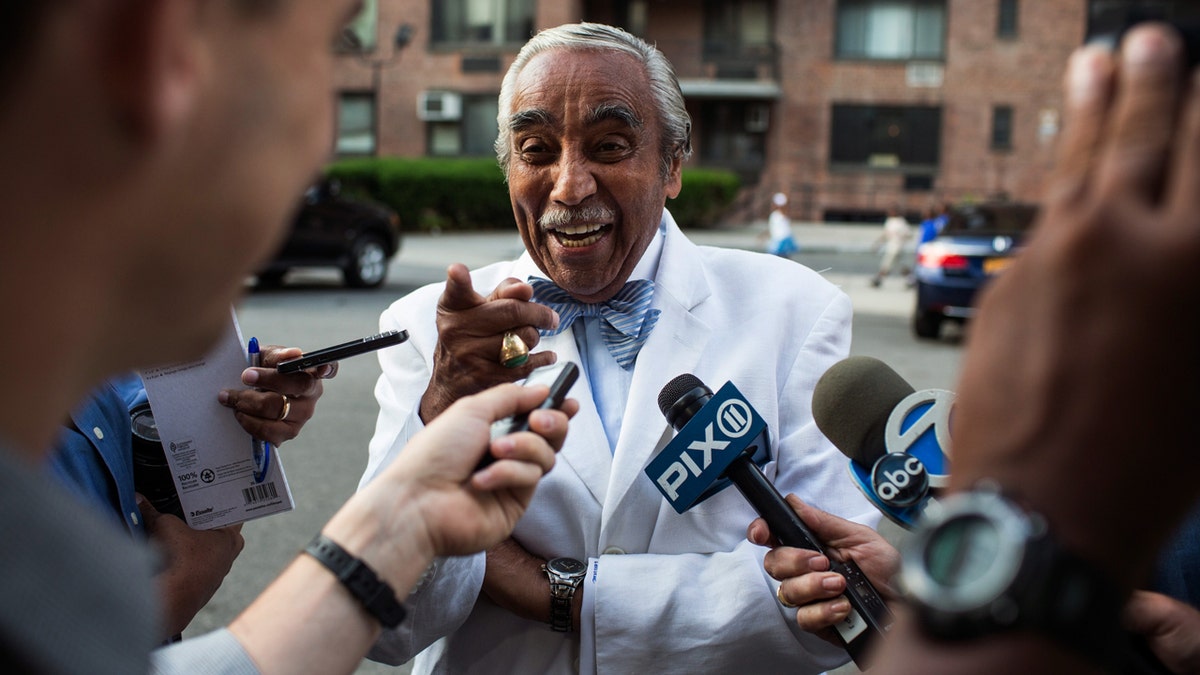
Years after the fact, I half-jokingly suggested that Rangel could blame his Ethics Committee problems on me. (Andrew Burton/Getty Images)
Years later, I half-jokingly told Rangel that he could blame me for his problems with the Ethics Committee.
As stated earlier, it was Rangel who believed his actions were beyond reproach. So he sent himself before the Ethics Committee to review his conduct.
I entered the Capitol one morning in 2008 and discovered his longtime aide, Emile Milne, wandering the basement. I asked Milne what he was looking for. He waived an overstuffed envelope at me.
«The Ethics Committee,» said Milne.
DEMOCRATS’ BOILING POT: A LOOK AT THEIR 2026 GAME PLAN
This was the actual «self-referral» to the Ethics Committee. And Milne was the courier of a dossier Rangel would use to defend himself.
I knew exactly where the Ethics Committee was located in those days in the Capitol catacombs. So I escorted Milne to the door.
As I said, I told Rangel he could blame all of his problems on me.
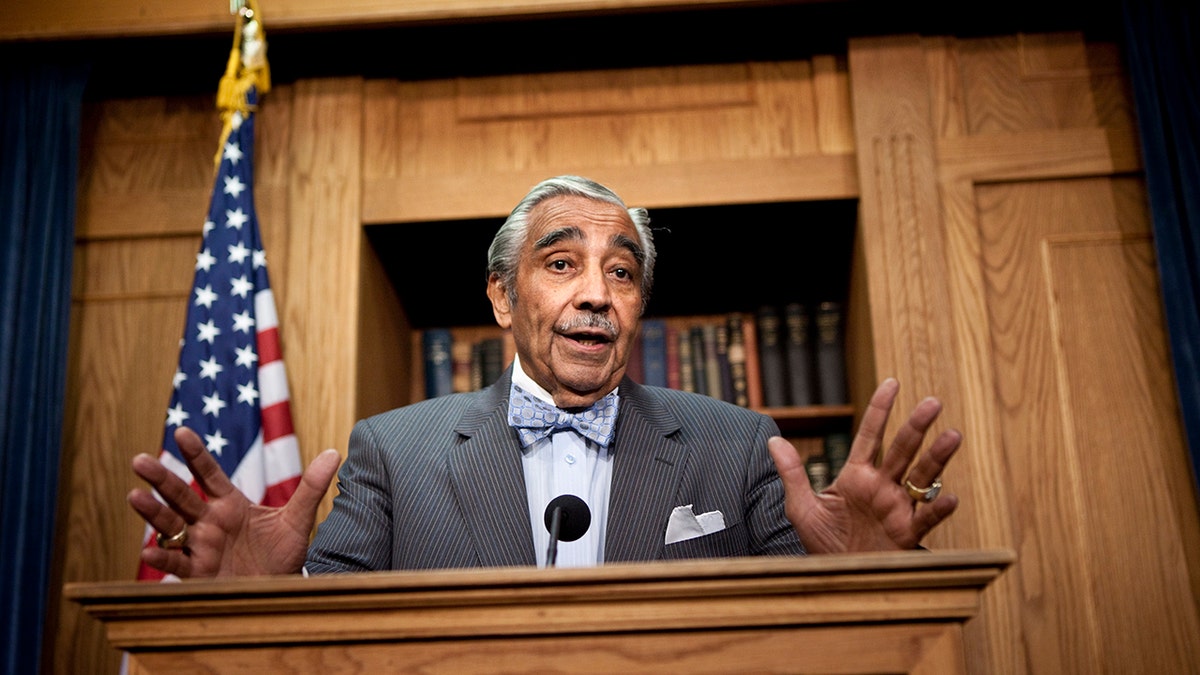
I recall one instance in which Rangel, hounded by the press, fired back at them with his name, rank and serial number — the only things a prisoner of war is obliged to provide. (Brendan Smialowski/Getty Images)
Between 2008 and 2010, I staked out Rangel somewhere at the Capitol nearly every day. The day Pelosi summoned him to her office. The day Pelosi removed him as Ways and Means Committee chairman. The day he spoke at length on the House floor to defend himself against the allegations after the ethics panel formalized its inquiry.
One night, a scrum of reporters caught Rangel in the hallway off the House floor and pelted him with a barrage of questions. Rangel briefly answered. Then deflected. He then decided he had enough as scribes fired questions at him with the speed of a Gatling gun.
Rangel sighed, exasperated at what to do.
«Sergeant Charles B. Rangel. 85718162!» hollered Rangel. «And that’s all I’m going to say about it!»
It’s unclear if the other reporters understood what just happened. But I did.
BY DAWN’S EARLY LIGHT: BATTLES TRUMP’S ‘BIG, BEAUTIFUL BILL’ WILL FACE IN THE SENATE
Rangel served in the Army during the Korean War. He was wounded in the back by shrapnel and eventually led dozens of men out of a firefight and to safety. Multiple soldiers died, and others were taken prisoner. Rangel received the Purple Heart and Bronze Star with valor.
Rangel survived that day. But back on Capitol Hill, the news cycle had effectively taken Rangel prisoner. So he complied with the terms of the Geneva Convention. A prisoner of war is only compelled to provide enemy captors their name, rank and serial number. And after absorbing heavy fire from the press corps, Rangel had only one option.
It’s notable that someone with Rangel’s military record and Army service passed away on Memorial Day.
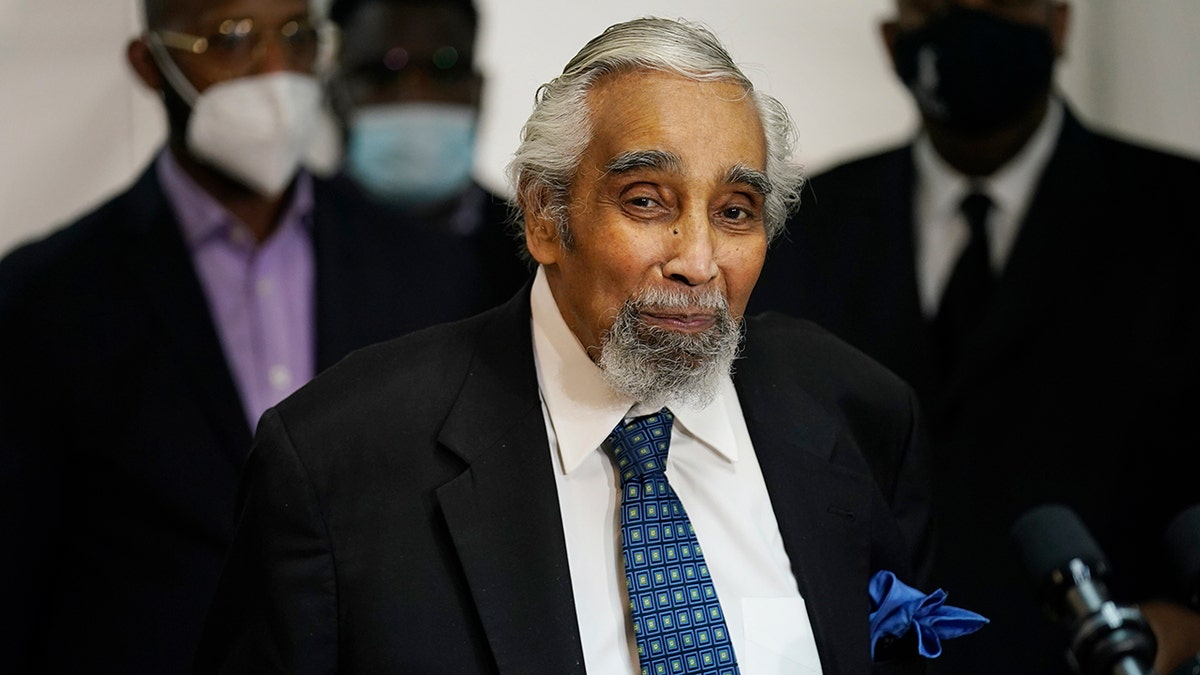
Rangel, a decorated veteran, died on Memorial Day. (Seth Wenig-Pool/Getty Images)
In August 2008, Rangel published his autobiography entitled «And I Haven’t Had a Bad Day Since.» The book chronicles how a high school dropout joined the Army and was wounded on the battlefield. Rangel chose to continue — eventually winding up in Congress as one of the most important lawmakers of the last 50 years. But Rangel then faced one of the harshest punishments Congress could dole out. It cost him his chairmanship and upended his reputation.
But Rangel was often philosophical about his fate and transgressions in Congress. He argued that despite the trouble, he still hadn’t had a bad day since that fateful battle in Kunu-ri, Korea in late 1950.
Back in 2012, I may have been the only one who noticed that Rangel was absent when he was suffering from a back issue and viral infection.
CLICK HERE TO GET THE FOX NEWS APP
But I certainly won’t be the only one today.
Congress,New York,New York City,House of Representatives Democrats,House Of Representatives,Politics
INTERNACIONAL
El Salvador registra más de 25,000 inmuebles inscritos en el primer bimestre de 2026 y mantiene dinamismo en la creación de empresas

En lo que va del año 2026, el Centro Nacional de Registros (CNR) reporta la inscripción de 25,381 inmuebles, una cifra que equivale a $720 millones, según datos oficiales difundidos por el director ejecutivo del CNR, Camilo Trigueros. Este comportamiento refleja la continuidad de una tendencia positiva que se consolidó en 2025, cuando se efectuaron 151,567 transferencias de dominio, generando un movimiento superior a $4,212 millones en el mercado inmobiliario salvadoreño. El incremento interanual en las transferencias de dominio alcanzó el 13%, impulsado tanto por la recuperación de zonas residenciales antes afectadas por la violencia, como por el renovado interés de inversionistas y ciudadanos residentes en el exterior.
Trigueros explicó en entrevista con el Noticiero Hechos, de Canal 12, que el proceso de transferencia de dominio responde principalmente a operaciones de compraventa, aunque también se registran casos de donaciones y herencias. Un estudio interno del CNR identificó que, en años recientes, las compraventas en colonias bajo control de pandillas eran prácticamente inexistentes debido a la falta de compradores y al temor de los propietarios a vender. Actualmente, tras mejoras en las condiciones de seguridad, estas zonas experimentan una reactivación del mercado inmobiliario, con participación de inversionistas nacionales, extranjeros y miembros de la diáspora salvadoreña.
El dinamismo del sector inmobiliario se suma al crecimiento sostenido de la actividad empresarial en el país. De acuerdo con datos publicados por Infobae el 4 de enero, El Salvador cerró 2025 con la creación de 8,373 nuevas empresas y más de 13,000 solicitudes de registro de marca, alcanzando cifras récord para la economía nacional. El crecimiento interanual en la conformación de nuevas empresas fue del 11%, mientras que las solicitudes de marca aumentaron un 18%, con especial énfasis en los sectores de gastronomía y comercio. Entre los factores que explican esta expansión se encuentran la digitalización de trámites, la simplificación de procesos y la implementación de figuras jurídicas más accesibles, como las Sociedades por Acciones Simplificadas (SAS).
El inicio de 2026 mantiene la tendencia al alza. Según datos oficiales, solo en enero se constituyeron cerca de 900 nuevas entidades, lo que proyecta que, de mantenerse el ritmo actual, El Salvador podría superar las 10,000 empresas creadas al finalizar el año. La digitalización de los servicios del CNR permite que el 70% de los usuarios obtenga respuesta a sus trámites en menos de 24 horas, lo que ha fortalecido la confianza de los inversionistas y emprendedores.
La recuperación del sector inmobiliario y el auge en la creación de empresas se explican, en parte, por la percepción de mayor seguridad, la estabilidad macroeconómica y el fortalecimiento institucional. De acuerdo con el balance presentado por Trigueros en medios radiales y televisivos, la mayoría de las nuevas empresas corresponden a sectores de servicios y comercio, con énfasis en pequeñas empresas familiares y emprendimientos gastronómicos. Además, la eliminación de barreras burocráticas y la gratuidad de trámites electrónicos han sido determinantes para el aumento de la formalización empresarial.
En 2025, la demanda de servicios del CNR creció un 11.1%, con más de 130,000 atenciones registradas a nivel nacional. El Instituto Adam Smith de la Universidad de la Florida ubicó a El Salvador en la quinta posición de facilidad para abrir una empresa en Latinoamérica, subiendo quince posiciones respecto a años previos. Las autoridades anticipan que la continuidad de las reformas y la ampliación de los servicios digitales mantendrán el ritmo de crecimiento en ambos rubros durante 2026.
corresponsal:Desde San Salvador, El Salvador
INTERNACIONAL
El ataque a Irán afectó también los viajes en Medio Oriente: caos en vuelos y aeropuertos
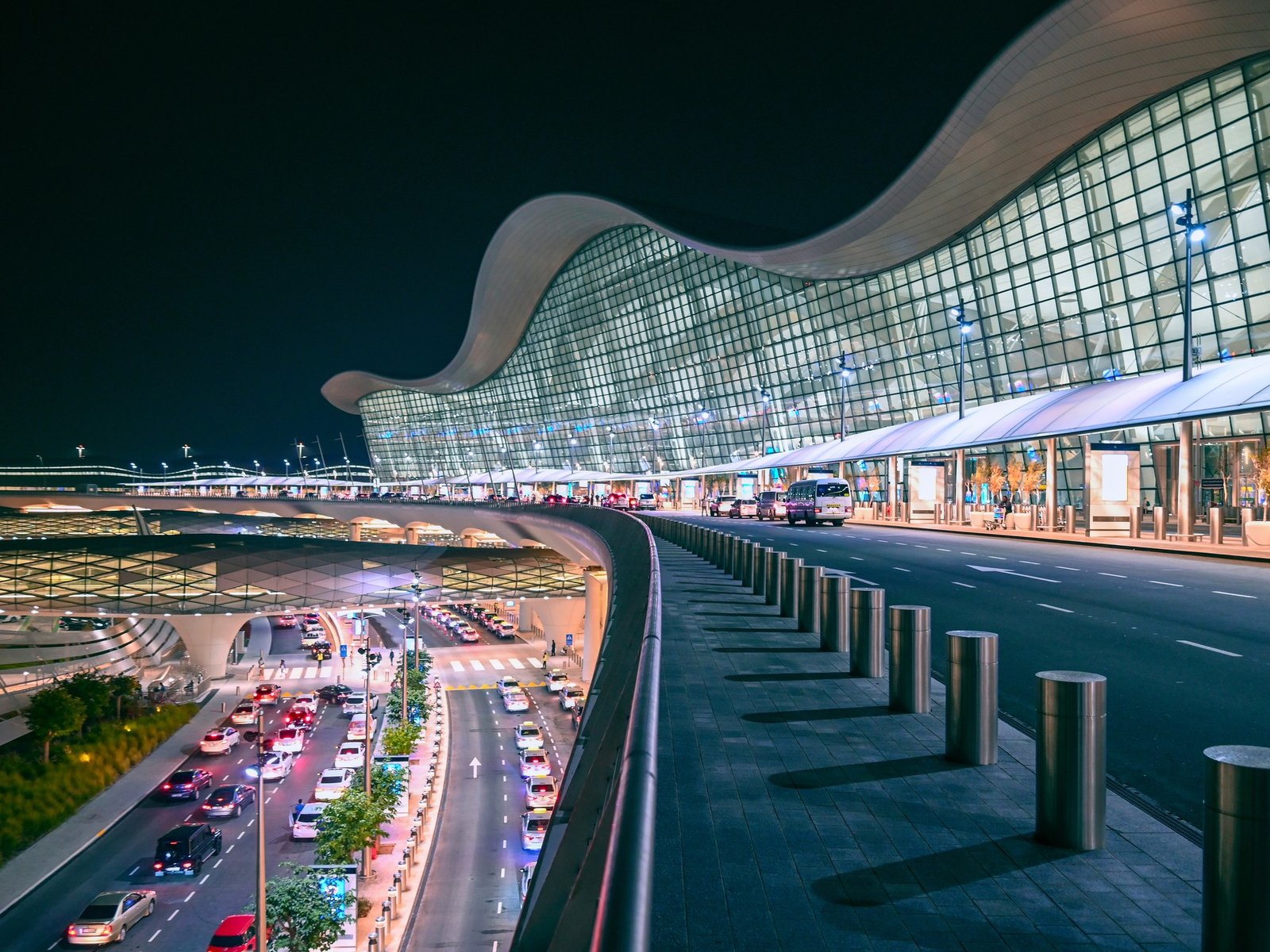
El ataque de Estados Unidos e Israel a Irán en la madrugada del sábado cambió sorpresivamente los planes de vuelos en todo Oriente Medio por el cierre del espacio aéreo en la región y las complicaciones se extendían este fin de semana por los ataques contra algunos aeropuertos y la suspensión de las operaciones en estaciones clave que conectan Europa, África y Occidente con Asia.
Cientos de miles de viajeros quedaron varados o fueron desviados a otros aeropuertos luego que Israel, Qatar, Siria, Irán, Irak, Kuwait y Bahréin cerraron sus espacios aéreos. Tampoco hubo actividad de vuelos sobre Emiratos Árabes Unidos, según el sitio web de rastreo FlightRadar24, después que el gobierno allí anunciara un “cierre temporal y parcial” de su espacio aéreo.
En ese marco se produjeron el cierre de aeropuertos clave de conexión en Dubái, Abu Dabi y Doha, y a la cancelación de más de 1.800 vuelos por parte de las principales aerolíneas de Oriente Medio. Las tres aerolíneas más importantes que operan en esos aeropuertos —Emirates, Qatar Airways y Etihad— suelen tener alrededor de 90.000 pasajeros por día transitando por esos centros y aún más viajeros con destino a lugares en Oriente Medio, según la firma de análisis de aviación Cirium.
En medio hubo un ataque de represalia iraní que impactó en el Aeropuerto Internacional de Dubái, el más grande de Emiratos Árabes Unidos y uno de los más transitados del mundo, donde al menos un hombre de nacionalidad asiática murió y otras tres personas resultaron heridas.
Emirates condenó el “ataque flagrante que involucró misiles balísticos iraníes”. También se reportaron ataques en otros aeropuertos comerciales de la región, incluido el Aeropuerto Internacional de Kuwait.
Henry Harteveldt, un analista de la industria aérea y presidente de Atmosphere Research Group, alertó que los pasajeros “deberían prepararse para retrasos o cancelaciones durante los próximos días a medida que estos ataques evolucionen y, con suerte, terminen”.
Las aerolíneas que están cruzando Oriente Medio tendrán que desviar los vuelos alrededor del conflicto, con muchos vuelos dirigidos hacia el sur sobre Arabia Saudí. Eso añadirá horas a esos viajes y consumirá combustible adicional, sumándose a los costos que las aerolíneas tendrán que absorber. Por lo tanto, los precios de los boletos podrían comenzar a aumentar rápidamente si el conflicto se prolonga.
Los vuelos adicionales también ejercerán presión sobre los controladores de tráfico aéreo en Arabia Saudí, que podrían tener que ralentizar el tráfico a fin de asegurarse de manejarlo de manera segura. Y los países que cerraron su espacio aéreo dejarán de percibir las tarifas de sobrevuelo que las aerolíneas pagan por cruzar por encima.
Por ahora no está claro cuánto tiempo durará la interrupción de las operaciones de vuelo. A modo de comparación, el ataque israelí y estadounidense a Irán en junio de 2025 duró 12 días.
En ese contexto, algunas aerolíneas estaban emitiendo exenciones para los viajeros afectados, lo que significa que los pasajeros pueden reprogramar sus planes de vuelo sin pagar cargos adicionales ni tarifas más altas.
Al menos 145 aviones que se dirigían a ciudades como Tel Aviv y Dubái a primera hora del sábado fueron desviados a aeropuertos en ciudades como Atenas, Estambul o Roma, según FlightAware. Otros dieron la vuelta y regresaron al lugar desde donde despegaron.
Un avión pasó casi 15 horas en el aire después de salir de Filadelfia y llegar hasta España antes de dar la vuelta y regresar al lugar donde comenzó.
Numerosas aerolíneas cancelaron vuelos internacionales a Dubái durante el fin de semana, y la agencia de aviación civil de India designó gran parte de Oriente Medio —incluidos los cielos sobre Jordania, Arabia Saudí y Líbano— como una zona de alto riesgo de seguridad a todas las altitudes.
Air India canceló todos los vuelos a destinos de Oriente Medio. Turkish Airlines señaló que los vuelos a Líbano, Siria, Irak, Irán y Jordania se suspenderán hasta el lunes, y que los vuelos a Qatar, Kuwait, Bahréin, Emiratos Árabes Unidos y Omán se suspenderán hasta nuevo aviso.
Delta Airlines, con sede en Estados Unidos, y United Airlines suspendieron los vuelos a Tel Aviv al menos durante el fin de semana, y la aerolínea holandesa KLM ya había anunciado a principios de semana que suspenderá sus vuelos con origen y destino en Tel Aviv.
Aerolíneas como Lufthansa, Air France, Transavia y Pegasus han cancelado todos los vuelos a Líbano, y American Airlines suspendió los vuelos de Filadelfia a Doha.
La inglesa British Airways informó que sus vuelos a Tel Aviv y Bahréin se suspenderán hasta la próxima semana, y que los vuelos a Amán, Jordania, se cancelarán el sábado.
Con información de AP / SMB
INTERNACIONAL
Concerns rise over DHS shutdown in shadow of Iran strikes: ‘Now would be a good time’ to end it

NEWYou can now listen to Fox News articles!
The partial government shutdown has Department of Homeland Security employees missing their paychecks even as the U.S. has engaged Iran with airstrikes that have brought the nation to the brink of war.
Earlier Saturday, the U.S. and Israel commenced targeted Iranian positions including the palace of dictator Ayatollah Ali Hosseini Khamenei – who was later declared dead by Jerusalem officials. The strikes have prompted concerns of retaliation, possibly inside U.S. borders.
«I am in direct coordination with our federal intelligence and law enforcement partners as we continue to closely monitor and thwart any potential threats to the homeland,» DHS Secretary Kristi Noem said in a statement.
As Friday rolled into Saturday, Transportation Safety Administration officers began effectively working pro bono, with the agency calling them «true models of selflessness and sacrifice.»
«Right now, the men and women of TSA are showing up to work without a paycheck due to the reckless DHS shutdown — despite the fact that Democrat members of Congress are still getting paid,» the agency said in a statement, calling out Democrats’ «political theater making life harder for these officers and their families.»
Lawmakers took notice of the disparity on Saturday as eyes turned to the security of America’s homeland amid Iran’s pledge to strike back.
«Given developments in the Middle East and the ongoing threat posed by Iran and its terrorist proxies, Democrats in the house, and Senate must cease the politics and must immediately fund the Department of Homeland Security,» said Rep. Daniel Meuser, R-Pa.
The Blue Mountain congressman – whose district is home to the agency’s latest immigration center purchase in Shartlesville, which is simultaneously being lambasted by Pennsylvania Gov. Josh Shapiro – added that blocking DHS funding is «irresponsible and dangerous» amid the rising global tension.
«Democrats in Congress must join Republicans, act responsibly and stop blocking efforts to fund DHS,» said Meuser.
Meuser added that protecting American people is a fundamental federal responsibility and that the U.S. cannot afford national security-related delays.
DHS SHUTDOWN TRIGGERS TSA ‘EMERGENCY MEASURES’ AS LAWMAKER WARNS AIRPORTS COULD FEEL ECONOMIC PAIN
His Keystone compatriot Sen. David McCormick echoed that sentiment in a Saturday statement:
«Now would be a good time for Democrats to drop their opposition to DHS funding and pass the bill to support our homeland security,» McCormick said.
«Continuing to play political games with our national security given the unfolding situation in the Middle East is dangerous.»
While many Democrats voiced concern or opposition to the Trump administration’s strikes, McCormick’s counterpart, Sen. John Fetterman, ridiculed critics on X – retweeting an alert that Ayatollah Ali Hosseini Khamenei had been killed, writing: «Let’s see who grieves for that garbage.»
The top Democrat on the House Homeland Security Committee, however, did criticize the operation.
Rep. Bennie Thompson of Mississippi told NOTUS News on Saturday that Trump’s attack lacks «a clear strategy» while saying the U.S. is «vulnerable to ensuing terrorism attacks today because of Trump’s reckless, inflammatory actions.»
CLICK HERE TO GET THE FOX NEWS APP
Iranian worshippers hold up their hands as signs of unity with Iran’s Supreme Leader, Ayatollah Ali Khamenei, during an anti-Israeli rally to condemn Israel’s attacks on Iran, in downtown Tehran, Iran, on June 20, 2025. (Morteza Nikoubazl/NurPhoto via Getty Images)
«I am deeply concerned about the administration’s attention to possible threats and its ability to protect Americans,» he added.
Just prior to the strikes, the Senate and House Democratic leaders released a joint statement addressing the DHS shutdown’s current conditions.
«We have received the White House’s counteroffer and are reviewing it closely. Democrats remain committed to keep fighting for real reforms to rein in ICE and stop the violence,» said New York Sen. Charles Schumer and Rep. Hakeem Jeffries.
Fox News Digital reached out to DHS for additional comment.
war with iran,iran,donald trump,immigration,homeland security,republicans

 CHIMENTOS2 días ago
CHIMENTOS2 días agoAlarma por la salud de Divina Gloria tras salir de Gran Hermano: “La internaron directamente en terapia intensiva”

 CHIMENTOS2 días ago
CHIMENTOS2 días agoGinette Reynal dio una rotunda marcha atrás con una decisión que tomó hace dos meses: “No aguanto más”

 CHIMENTOS2 días ago
CHIMENTOS2 días ago¡Titi revolucionó Gran Hermano! Cuáles son las 5 cosas que ya extraña: «Accesorios, pilates, bondiola, auriculares y bailar»

